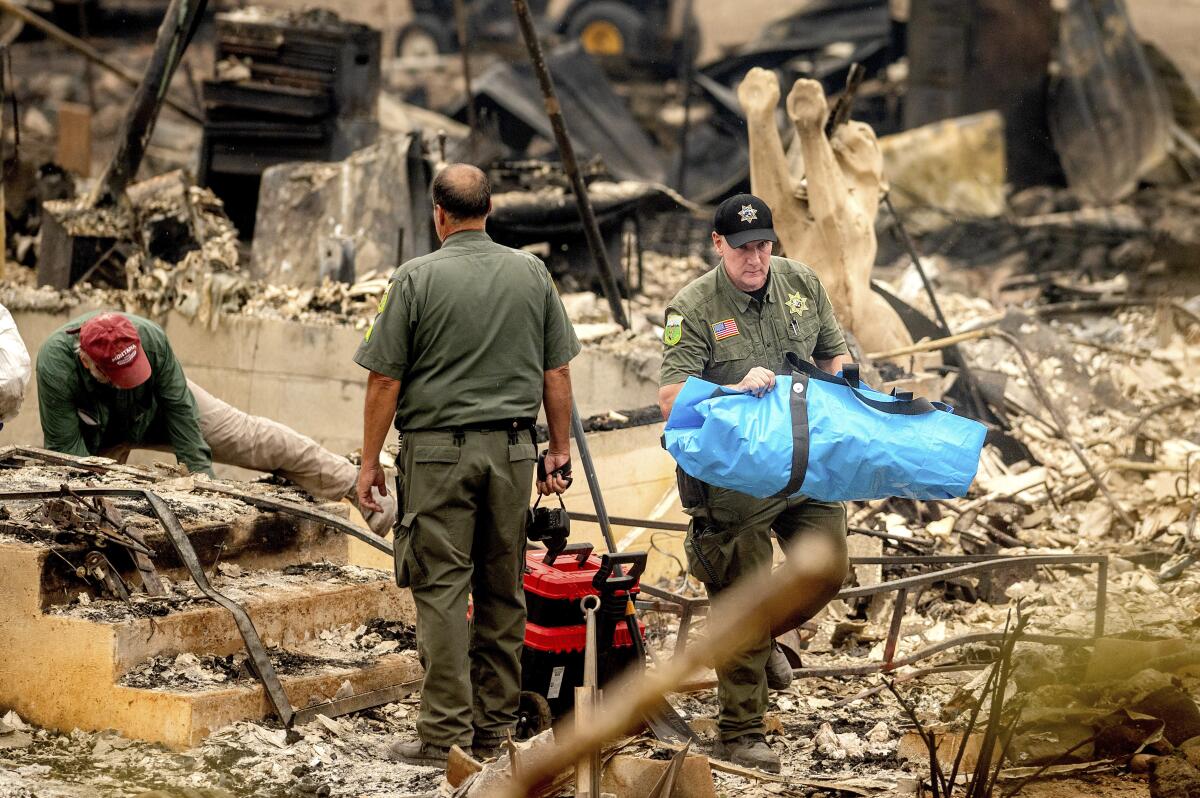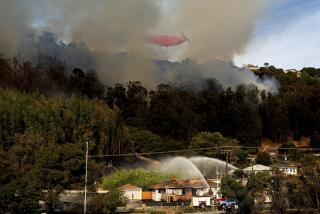McKinney fire, California’s biggest of year, destroyed at least 132 structures

The McKinney fire, which has killed four people, has destroyed 132 structures including 87 homes as it scorched nearly 60,000 acres in the Klamath National Forest, officials said Friday.
Meanwhile, firefighters have slowed down the fire’s pace one week after it ignited, but fire officials warned flames could still make a run.
Crews were keeping an eye on the fire burning near the California-Oregon border as containment increased to 30% Friday night.
In the last 24 hours, officials with the Klamath National Forest said the fire had burned about 300 acres, a significant slowdown after it had burned through 59,666 in the last seven days.
“We did see some growth in the fire,” said Dennis Burns, fire behavior analyst for the U.S. Forest Service during a briefing Friday. “It was all within lines.”
The McKinney fire near the Oregon border has burned more than 51,000 acres in the Klamath National Forest.
After battling through mudslides and thunderstorms Wednesday, firefighters on Thursday saw warming temperatures and dryer air, prime conditions for fire growth.
“The fire responded in kind,” Burns said.
Years of drought have also had an effect, he said during a community meeting Friday night, adding that fuels were the driest he’s seen in 40 years of firefighting.
The 2,700 firefighters on hand saw short-range spotting in the southwest and west corners of the fire, but the fire’s short advance remained in areas that firefighters could keep in check.
“Everything was staying where we wanted it to stay,” Burns said.
Crews have been able to build fire lines across most of the blaze, impeding its growth, he said.
On the east side of the fire, Burns said, there was still a threat that the flames could cut through those lines and advance.
On Wednesday, the eastern half saw about 3 inches of rainfall through thunderstorms, but the water had no effect on the flames.
“The fire was responding as if it never rained at all,” he said.
Officials noted at Friday night’s meeting that after storms produced lightning strikes in the area, new fire starts will require crews and other resources, but firefighters on the McKinney fire remain dedicated to full suppression, they said.
Darryl Laws, a unified incident commander with the California Department of Forestry and Fire Protection, said the firefighting effort was “in a different place” than in the first days when the blaze exploded in size, throwing up a raging pyrocumulonimbus cloud.
“It’s going to take a lot of people to put this thing to bed,” Laws said. “It kind of laid down there and it’s waiting to jump up. We’re going to have some tough weather. We’re going to have some winds. We’re not out of the woods yet.”
As a precaution, firefighters were building contingency lines with bulldozers in case the fire lines do not hold.
Over the weekend, firefighters will probably continue to extend containment lines in high heat. Temperatures were expected to reach the mid-90s Saturday. On Sunday, temperatures could reach triple digits.
More to Read
Sign up for Essential California
The most important California stories and recommendations in your inbox every morning.
You may occasionally receive promotional content from the Los Angeles Times.













